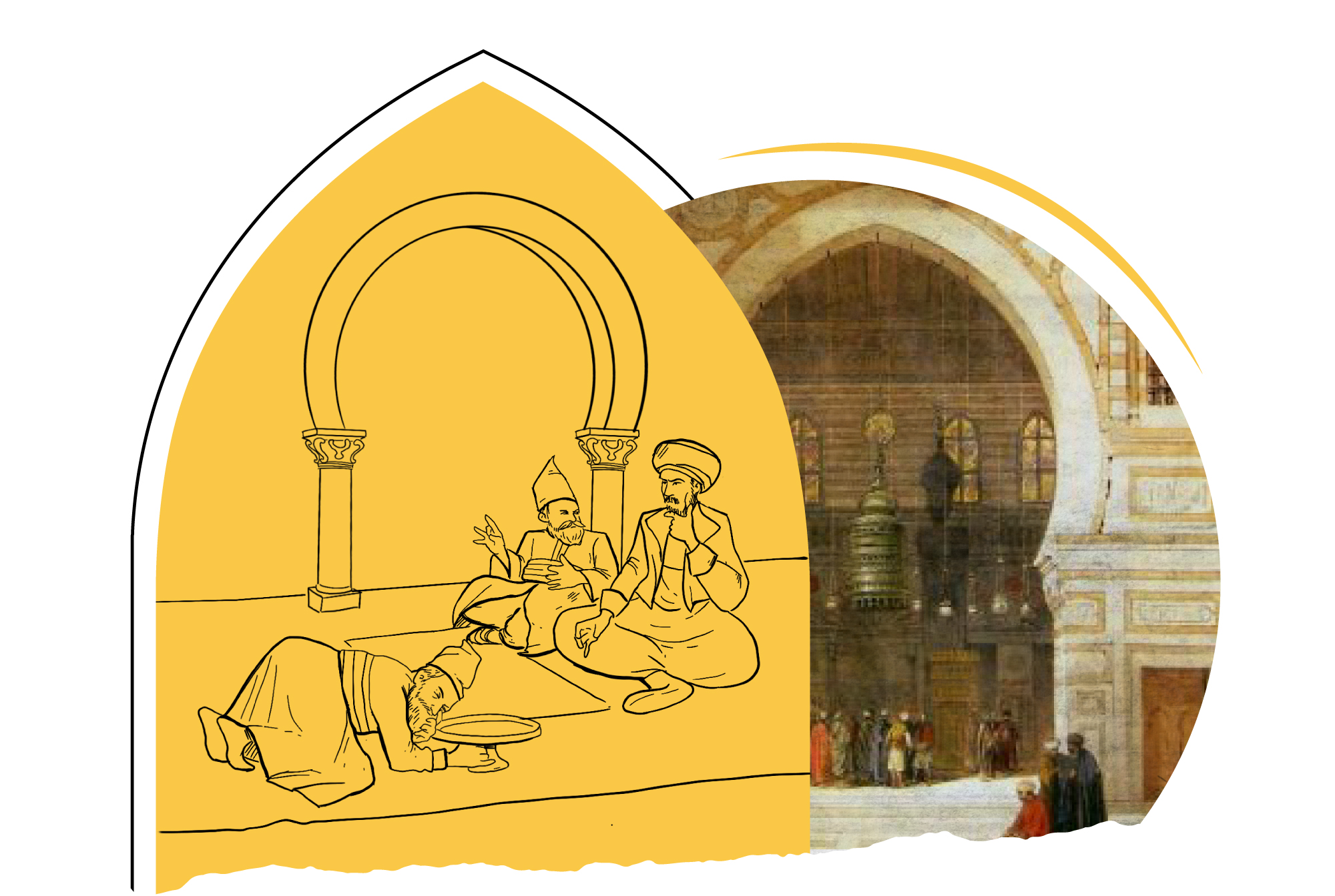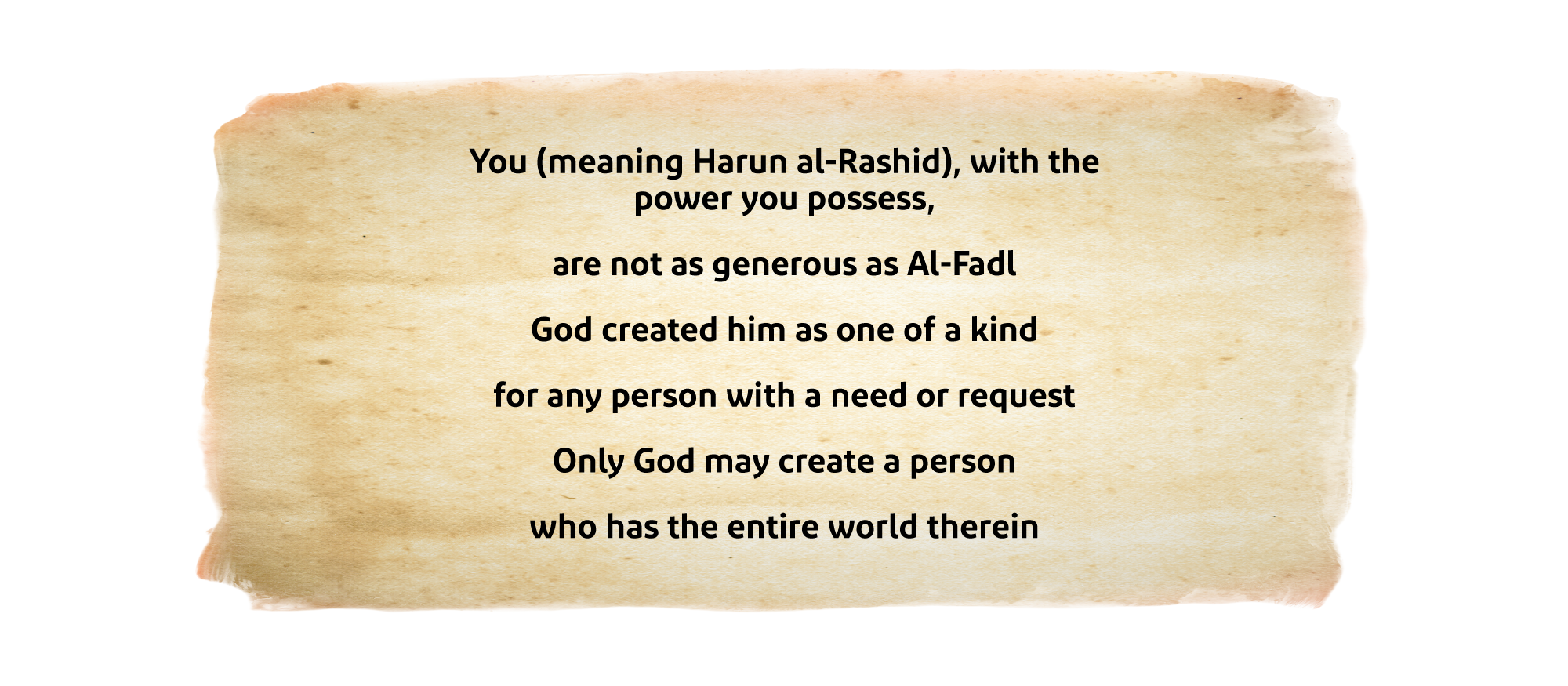
The “Barmakaized” in Abbasid State Era
Accused of hiding their Magi creed and practicing their rituals in the basements of their palaces
Every beginning has an end. This existential axiom applies to the negative impact that the Barmakids left on the state while the Abbasid caliphs are inattentive. They realized only very late that the Barmakids were working to empower the Persian race, striving to overthrow the Abbasids throne in retaliation against the Arab Muslims, whom they had always considered a major cause behind the fall of the last Persian empire at the hands of Al-Faruq Omar Ibn Al-Khattab, may Allah be pleased with him.
Barmakids’ penetration of power and the court reached a point where everyone considered them the “apparent state”, until some called it the “Barmakid Atate” during the reign of Caliph Harun al-Rashid. It can be said that the Barmakids almost cut the vein of the Arab state when they insisted on al-Ma’mun assuming the position of guardianship of the Covenant, given that his mother was Persian and because he was raised by Ja’far ibn Yahya.
The Barmakids had an (external) state within the Abbasid state, through which they practiced their authority and control.

In this context, the Barmakids were not satisfied with controlling the joints of political and economic power until the Abbasid court. They paid attention to the power of what is known today as “media war”. They recruited those who well-reputed and whose achievements were praised to present them to the people as the actual owners of the state, so as to ensure their loyalty. They sought to facilitate the passage of malicious Magian ideas, hence was their success in controlling the base after they succeeded in controlling the top, even for a while.
The Barmakids found their way to the gatherings of common people through wise men, scholars and poets, so they lavished gifts on them and took them as a way to the hearts of some people. Al-Hafiz al-Suyuti elaborates on this point, saying: “There was almost no one among the scholars, wise and great men and friends that the Barmakids were not extensively generous to. Ja’far fave fifty thousand dinars of gold repeatedly I during his entire mandate, until they obtained the description that “So-and-so has been Barmakized”
The final say on the truth of the political goals of the Barmakids may be difficult to determine given the silence of the historians of that era regarding the hidden political details of the Abbasid state and members of the ruling family (Al-Abbasa, Khaizarun, Zubaydah and Al-Rashid). Some went on to say that there were secret practices of the Barmakids that made them classified outside the circle of Islam and that “hidden basements were found in all Barmakids’ dwellings that no one else could enter. There was also a secret temple in front of which a continuous flame was lit in a “nawasa” golden vessel, in front of which they secretly performed unknown religious rituals and offered sacrifices that had nothing to do with Islam”.
If there are historians who challenge this narration, it is still proven that the Barmakids did not see that they were “employees” in the state or eve “its men” at the highest estimation, but rather they acted as the actual owners thereof. They did not hide their hatred towards everything that is Arab, even if it was the Abbasid caliph himself, although they practiced political piety cunningly and sought to empower the followers and then control the joints of the court. They also attempted to win over the people of solution and decision, as well as the other “influencers” to direct the helm of political decision.
It can be said that the Barmakids competed with the Abbasid caliphs in politics and governance until they became a subject of gossiping. Their biography was tackled by narrators and poets who strived to approach and flatter them. Barmakids used to “send to poets and allure them to write in their praise. Poets did not hesitate to stand at their doors and utter their poems, regardless of their status in poetry, in the state, in the councils of the caliphs or among the scholars…, because the Barmakids’ political status, their social status and their economic status… as well as their great giving … all rendered their poets’ tongues that pronounce Barmakids’ favors and merits to Islam and the state”.
Some poets exaggerated their praise of the Barmakids and raised them to a rank higher than that of the caliph himself. We find a poet like Abu Nawas saying the following in Al-Fadl ibn Yahya Al-Barmaki, referring to Harun Al-Rashid:

Power and authority took over the hearts of the Barmakids and they thought that positions and money were capable of give them sovereignty over the Abbasid political decision. Thus, they aroused the wrath of the public, the caliph, his wife and Hashemites’ seniors, only for the Barmakids to wake up to a disaster that they had not expected or guessed. Perhaps the excessive confidence with which the Barmakids began to act and the slips of the tongue of Ja’far ibn Yahya under the influence of “intoxicants of love” precipitated Harun al-Rashid’s vengeance on that Persian family. It was only a night before Jaafar’s head was cut off and plans were developed to remove Yahya Al-Barmaki and his son Al-Fadl. The Barmakids were then dispersed in all lands, thus the collapse of the most dangerous Persian projects to overthrow the Arab state represented in the Abbasids state.


- Ahmed Amin, Haroun Al-Rashid (Cairo: Hindawi Foundation, 2014).
- Saleh Ramadan, Baramkids Shu’ubi Approach, Research Journal of the College of Basic Education, University of Mosul, p.4 (2010).
- Kouider Bashar, Barmakids Role in the History of the Abbasid State (Algeria: Institute of History, 1985 AD).
- Ali Al-Amr, Persians Political Impact in the First Abbasid Era (Cairo: Al-Degwi Press, 1979).
- Muhammad Diab Al-Atlidi, Informing People of What Happened to the Barmakids with the Abbasids (Beirut: Dar Sader, 1990).
- Muhammad Barang, Baramkids in the Shadows of the Caliphs (Cairo: Dar Al-Maarif, n.d.)

